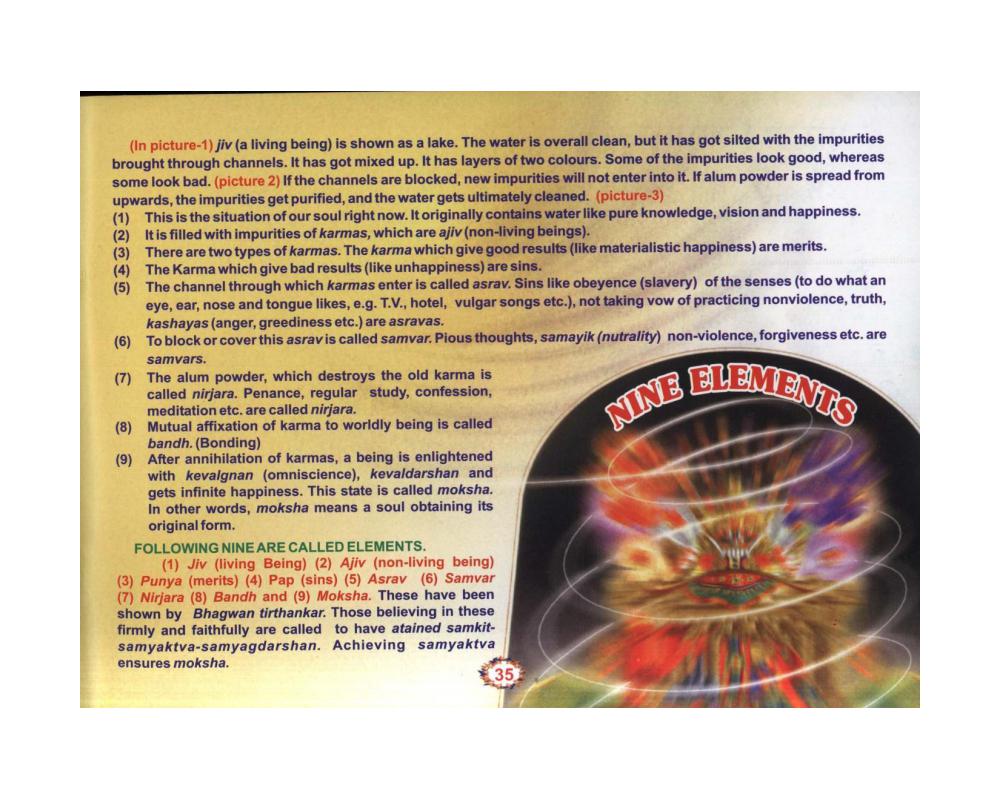________________
MENTS
(In picture-1) jiv (a living being) is shown as a lake. The water is overall clean, but it has got silted with the impurities brought through channels. It has got mixed up. It has layers of two colours. Some of the impurities look good, whereas some look bad. (picture 2) If the channels are blocked, new impurities will not enter into it. If alum powder is spread from upwards, the impurities get purified, and the water gets ultimately cleaned. (picture-3) (1) This is the situation of our soul right now. It originally contains water like pure knowledge, vision and happiness. (2) It is filled with impurities of karmas, which are ajiv (non-living beings). (3) There are two types of karmas. The karma which give good results (like materialistic happiness) are merits. (4) The Karma which give bad results (like unhappiness) are sins.
The channel through which karmas enter is called asrav. Sins like obeyence (slavery) of the senses (to do what an eye, ear, nose and tongue likes, e.g. T.V., hotel, vulgar songs etc.), not taking vow of practicing nonviolence, truth, kashayas (anger, greediness etc.) are asravas. To block or cover this asravis called samvar. Pious thoughts, samayik (nutrality) non-violence, forgiveness etc. are samvars. The alum powder, which destroys the old karma is called nirjara. Penance, regular study, confession, meditation etc. are called nirjara. Mutual affixation of karma to worldly being is called
bandh. (Bonding) (9) After annihilation of karmas, a being is enlightened
with kevalgnan (omniscience), kevaldarshan and gets infinite happiness. This state is called moksha. In other words, moksha means a soul obtaining its
original form. FOLLOWING NINE ARE CALLED ELEMENTS
(1) Jiv (living Being) (2) Ajiv (non-living being) (3) Punya (merits) (4) Pap (sins) (5) Asrav (6) Samvar (7) Nirjara (8) Bandh and (9) Moksha. These have been shown by Bhagwan tirthankar. Those believing in these firmly and faithfully are called to have atained samkitsamyaktva-samyagdarshan. Achieving samyaktva ensures moksha.
(8)
NINES
35




